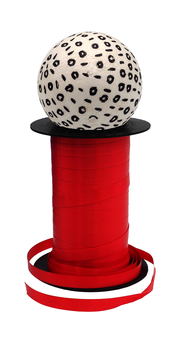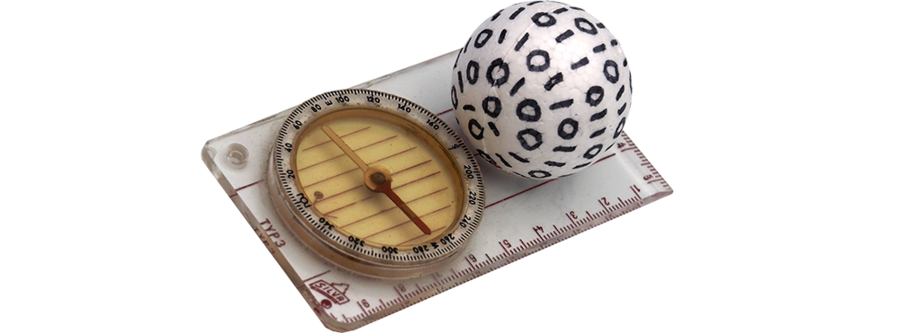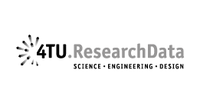The integrity of research is based on adherence to core values— objectivity, honesty, openness, fairness, accountability, and stewardship. These core values help to ensure that the research enterprise advances knowledge | National Academies of Sciences, 2017
Core values, such as integrity and reproducibility, form the roots of the scientific enterprise. Putting these core values into practice increases the reliability, usability and efficiency of scientific research.
Integrity and reproducibility

Core values are like the ethical compass of science and form the common thread that connects all parts of the research lifecycle. They indicate what is 'good science' and what the research community strives for. Essentials 4 Data Support focuses on two core values: Integrity and reproducibility. If researchers work with integrity and reproducibility, this not only leads to reliable but also to reusable science.
The way in which the research community strives for reliable and reusable research is taken up in different ways. Concepts such as open science, Research Data Management (RDM) and FAIR data management represent a vision. A way forward. These types of terms indicate where the emphasis should lie on the road to reliable and (re)usable research results. The concepts show what you should do to walk the talk.
We believe that Open Science has the potential to change the workings of the scholarly communication system for the better – but we see openness as a means to an end. When we call for openness in scholarly communication, we usually try to achieve an underlying principle, such as accessibility or reusability | Vienna Principles, 2016
In the next two sections we will discuss the core values of integrity and reproducibility in more detail.

In the spotlight
Core values in the strategic plan of the Center for Open Science (2017)
The mission of the Center for Open Science is to increase the openness, integrity and reproducibility of scientific research. The strategic plan of the 'Center for Open Science' (Nosek, 2017) states that openness and reproducibility are core values in the current research culture, but at the same time they are values that are not yet being put into practice within all disciplines. .
The COS wants to change this in five ways:
- Metascience
Gather new knowledge to encourage change - Infrastructure
Building technology to make change possible - Training
Spreading knowledge to make change possible - Recognition and appreciation
Give reasons to embrace change - Community
Promoting connection and inclusion to spread change
Core values in the Dutch 'National Plan Open Science' (2017)
The National Plan Open Science (2017) describes how the government, educational institutions and research organizations work together to create an open, honest and transparent scientific process:
For science, open science results in a more transparent, more verifiable, faster, more efficient, more reproducible and more sustainable research process and, therefore, to the accelerated development of knowledge | National Plan Open Science (2017)
A vision document by the Vereninging Hogescholen, the Dutch association for Universities of Applied Sciences, has the following to say about open science:
We see open science as an important means to increase the impact of practice-oriented research. The publication of research data and research results supports the circulation of knowledge and helps to generate new knowledge in the triangle of research, practice and education| Translated into English from a Dutch document, Vereniging Hogescholen (2017)
In the first quote the emphasis is more on the core values themselves and in the second quote the emphasis is on the results of open science.

Sources
Click to open/close
Association of Dutch Universities of Applied Sciences (2017, in Dutch). Hogescholen en Open Science: Naar meer impact van praktijkgericht onderzoek. https://www.vereniginghogescholen.nl/system/knowledge_base/attachments/files/000/000/826/original/Visie-statement_Open_Science_Vereniging_Hogescholen.pdf?1511795636
National Academies of Sciences, Engineering, and Medicine. 2017. Fostering Integrity in Research. Washington, DC: The National Academies Press. https://doi.org/10.17226/21896
Kraker, P., Dörler, D., Ferus, A., Gutounig, R., Heigl, F., Kaier, C., … Wandl-Vogt, E. (2016, June 15). The Vienna Principles: A Vision for Scholarly Communication in the 21st Century. Zenodo. https://doi.org/10.5281/zenodo.55597
National Plan Open Science. DANS, De Jonge Akademie, DTL, GO FAIR, KB, KNAW, LCRDM, Netherlands eScience Center, NFU, NWO, PNN, SURF, 4TU.Centre for Research Data, UKB, VH, VSNU, ZonMw. (2017). https://www.openscience.nl/files/openscience/2019-02/nationalplanopenscience_en.pdf
Nosek, B. A. (2017, March 6). Center for Open Science: Strategic Plan. https://doi.org/10.31219/osf.io/x2w9h





